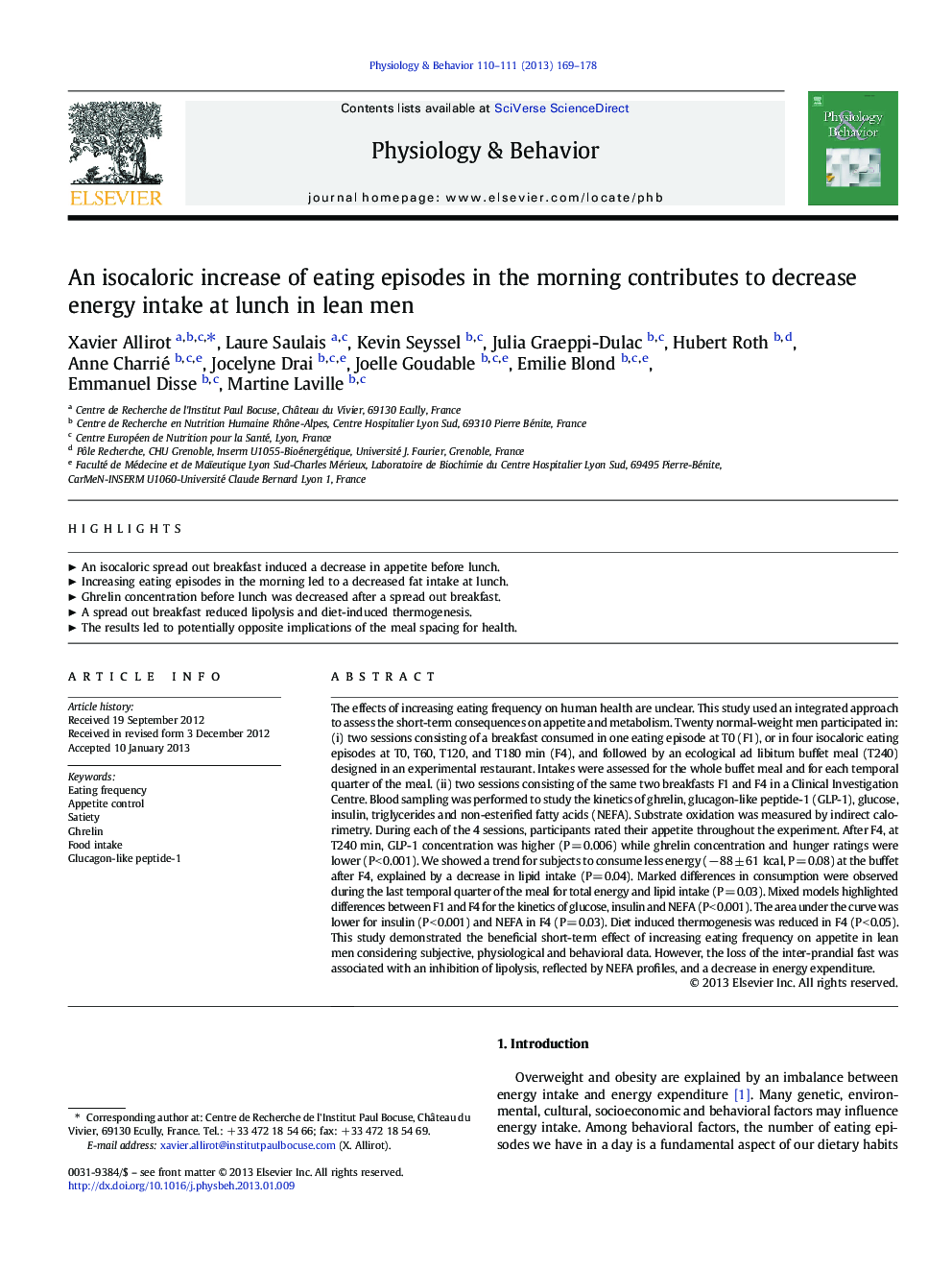| کد مقاله | کد نشریه | سال انتشار | مقاله انگلیسی | نسخه تمام متن |
|---|---|---|---|---|
| 5924870 | 1571203 | 2013 | 10 صفحه PDF | دانلود رایگان |
The effects of increasing eating frequency on human health are unclear. This study used an integrated approach to assess the short-term consequences on appetite and metabolism. Twenty normal-weight men participated in: (i) two sessions consisting of a breakfast consumed in one eating episode at T0 (F1), or in four isocaloric eating episodes at T0, T60, T120, and T180 min (F4), and followed by an ecological ad libitum buffet meal (T240) designed in an experimental restaurant. Intakes were assessed for the whole buffet meal and for each temporal quarter of the meal. (ii) two sessions consisting of the same two breakfasts F1 and F4 in a Clinical Investigation Centre. Blood sampling was performed to study the kinetics of ghrelin, glucagon-like peptide-1 (GLP-1), glucose, insulin, triglycerides and non-esterified fatty acids (NEFA). Substrate oxidation was measured by indirect calorimetry. During each of the 4 sessions, participants rated their appetite throughout the experiment. After F4, at T240 min, GLP-1 concentration was higher (P = 0.006) while ghrelin concentration and hunger ratings were lower (P < 0.001). We showed a trend for subjects to consume less energy (â 88 ± 61 kcal, P = 0.08) at the buffet after F4, explained by a decrease in lipid intake (P = 0.04). Marked differences in consumption were observed during the last temporal quarter of the meal for total energy and lipid intake (P = 0.03). Mixed models highlighted differences between F1 and F4 for the kinetics of glucose, insulin and NEFA (P < 0.001). The area under the curve was lower for insulin (P < 0.001) and NEFA in F4 (P = 0.03). Diet induced thermogenesis was reduced in F4 (P < 0.05). This study demonstrated the beneficial short-term effect of increasing eating frequency on appetite in lean men considering subjective, physiological and behavioral data. However, the loss of the inter-prandial fast was associated with an inhibition of lipolysis, reflected by NEFA profiles, and a decrease in energy expenditure.
⺠An isocaloric spread out breakfast induced a decrease in appetite before lunch. ⺠Increasing eating episodes in the morning led to a decreased fat intake at lunch. ⺠Ghrelin concentration before lunch was decreased after a spread out breakfast. ⺠A spread out breakfast reduced lipolysis and diet-induced thermogenesis. ⺠The results led to potentially opposite implications of the meal spacing for health.
Journal: Physiology & Behavior - Volumes 110â111, 17 February 2013, Pages 169-178
